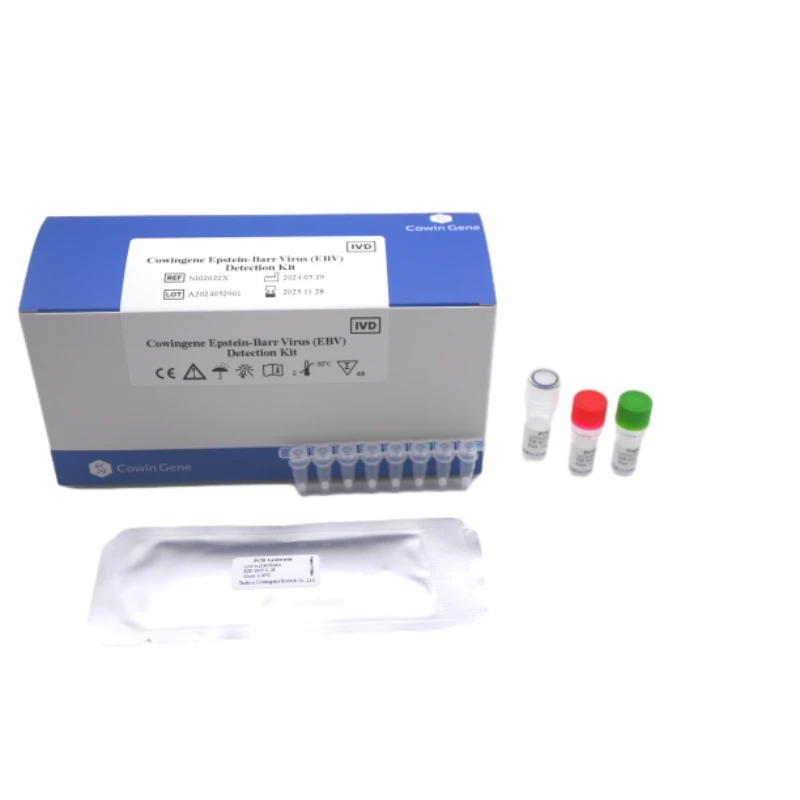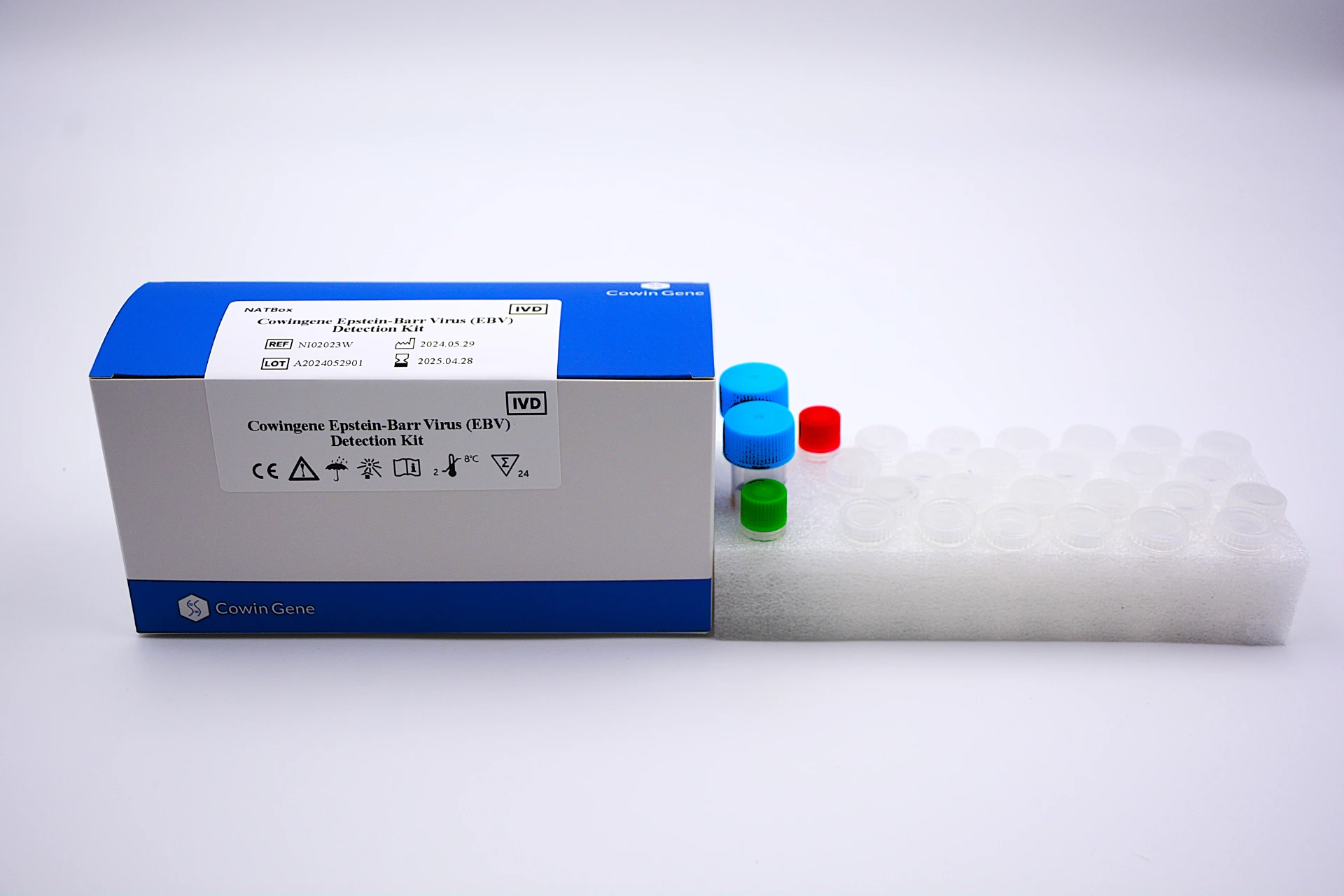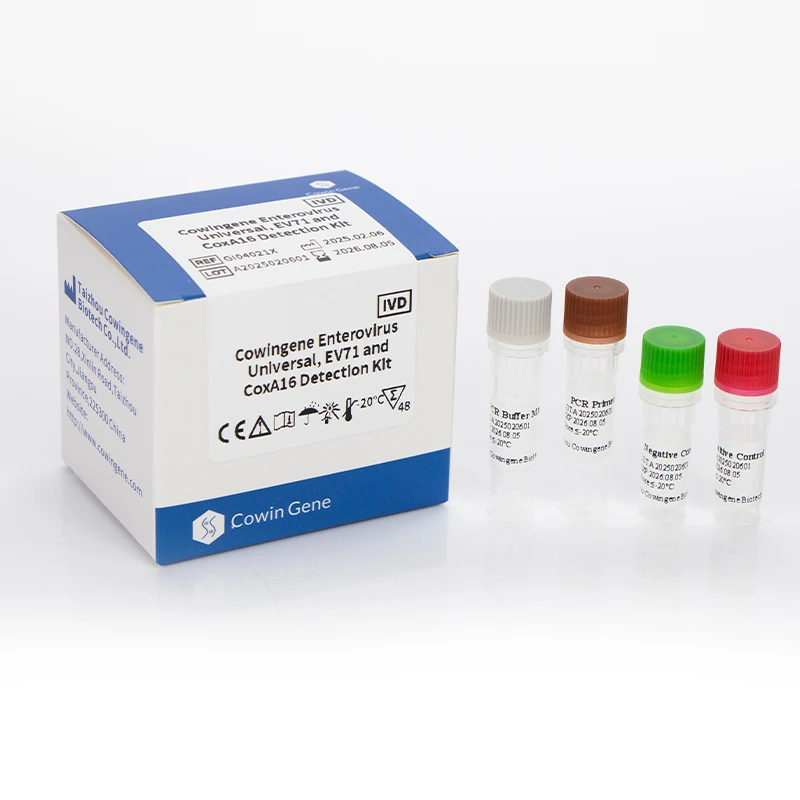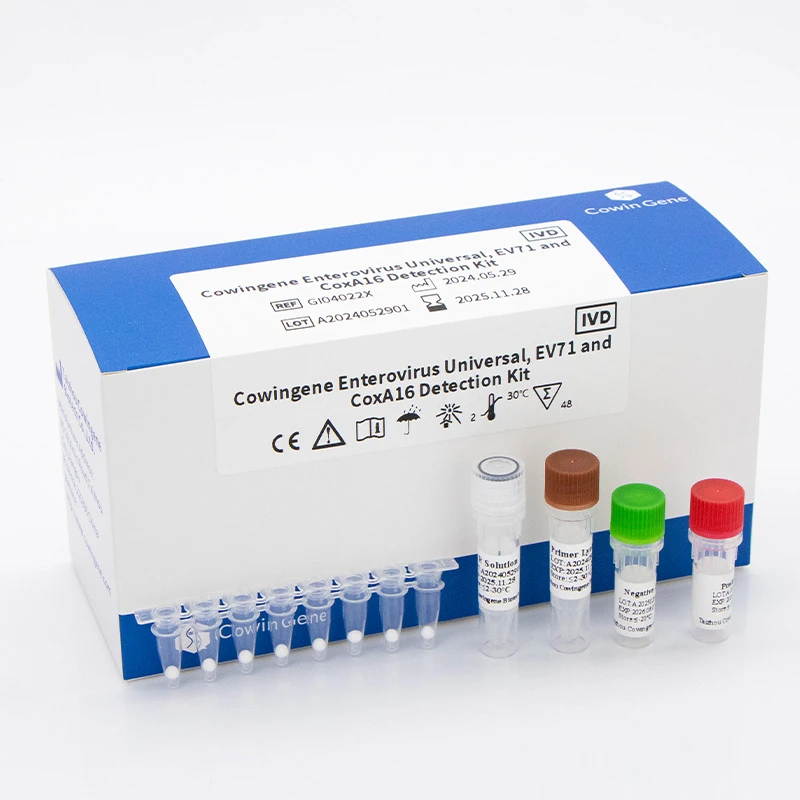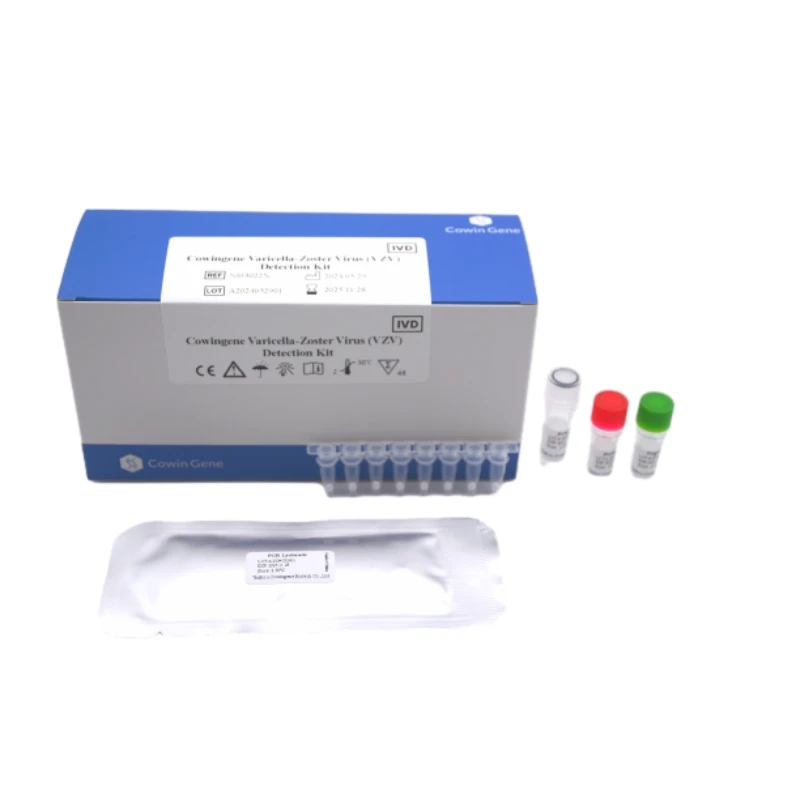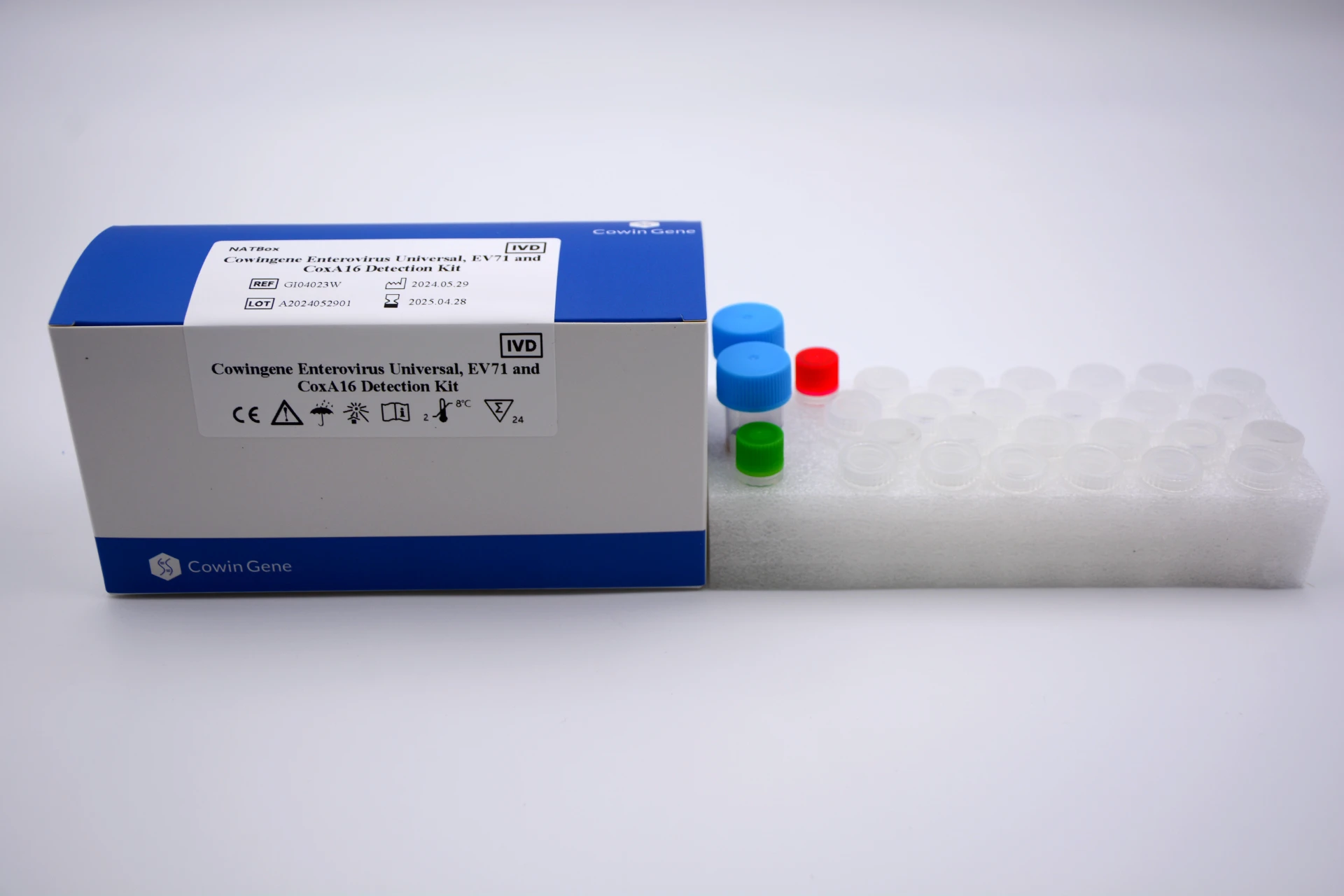Nov . 18, 2025 23:00 Back to list
Comprehensive Guide to Group B Streptococcus PCR Testing and Its Global Impact
Group B Streptococcus PCR: Unlocking Faster, Accurate Diagnosis Worldwide
If you’ve ever come across the term group B streptococcus PCR in a hospital or research context, you might have wondered why it’s suddenly everywhere in labs and clinics around the globe. At its core, this molecular technique addresses a pressing issue: swiftly identifying Group B Streptococcus (GBS), a bacterium that can quietly threaten newborns and pregnant women if undetected.
Understanding group B streptococcus PCR means understanding a tool that’s reshaping prenatal care standards, reducing infection risks dramatically, and ultimately saving lives. The global health community’s focus on early detection is rising, and you’ll see why — this isn’t just a lab test, it’s a life safeguard.
Why Group B Streptococcus PCR Matters in a Global Context
Globally, GBS colonization affects roughly 18–25% of pregnant women, and though many carriers remain asymptomatic, GBS remains the leading cause of neonatal sepsis, pneumonia, and meningitis. According to the World Health Organization (WHO), the burden of invasive GBS disease remains particularly high in low- and middle-income countries. This is where PCR, polymerase chain reaction testing, steps in with game-changing advantages.
Conventional culture methods take 24-48 hours and risk missing rapid-onset infections. PCR provides results within hours, enabling timely clinical interventions. In regions struggling with limited lab infrastructure, faster diagnostics mean fewer hospital stays, less use of empirical antibiotics, and better-targeted treatment — a critical boon for global maternal and child health programs.
Mini takeaway: Group B streptococcus PCR isn’t just a fancy lab acronym. It’s an urgent solution to a persistent neonatal health threat worldwide.Demystifying Group B Streptococcus PCR: What Is It?
Simply put, group B streptococcus PCR is a molecular diagnostic technique that amplifies and detects the DNA of GBS bacteria directly from clinical samples — commonly vaginal or rectal swabs from pregnant women. Unlike traditional culture-based approaches, which rely on growing bacteria over days, PCR targets specific genetic markers of the bacteria, giving results much faster and with high sensitivity.
In real clinical environments, it means physicians can decide within a few hours whether a mother carries GBS, and promptly administer antibiotics during labor if necessary to prevent neonatal infection. This has profound effects on reducing early-onset disease in newborns, especially in settings where timely action matters.
Key Components of Group B Streptococcus PCR Testing
1. Sensitivity & Specificity
PCR tests detect very small amounts of genetic material, making them highly sensitive. This reduces false negatives that culture methods can sometimes produce, especially if the bacteria are in low numbers or the sample is overgrown with other flora.
2. Speed of Results
Obtaining results in hours rather than days means rapid clinical decision-making. This is crucial during labor, where time is often limited.
3. Sample Type Flexibility
Commonly, swabs from the vagina and rectum are used, but PCR can work on urine or amniotic fluid in research settings, expanding diagnostic flexibility.
4. Automation & Scalability
Modern PCR platforms offer automation that suits labs of all sizes—from small clinics in rural areas to large hospitals—making widespread screening more feasible.
5. Cost Efficiency Over Time
While upfront costs for PCR equipment and reagents can be higher, the overall savings from reduced neonatal care costs and improved patient outcomes often offset initial investments.
Mini takeaway: The strength of group B streptococcus PCR lies not just in what it detects, but how fast, reliably, and flexibly it does so.Where Is Group B Streptococcus PCR Making a Difference?
In high-income countries like the US, UK, and Australia, group b streptococcus pcr is becoming a standard part of prenatal screenings, complementing or replacing culture tests in many hospitals. In contrast, resource-limited regions in sub-Saharan Africa and Southeast Asia are gradually adopting PCR to bridge gaps caused by delays and lab infrastructure challenges.
Take, for example, a network of maternal hospitals in Kenya: the introduction of rapid GBS PCR screening correlated with a marked drop in neonatal sepsis cases over two years. Similarly, disaster relief organizations in flood-prone areas are integrating PCR-based diagnostic kits to quickly screen at-risk populations, ensuring early preventive treatment is not missed even in chaotic field conditions.
Product Specification Table for Typical Group B Streptococcus PCR Kits
| Specification | Typical Value | Notes |
|---|---|---|
| Sample Type | Vaginal/Rectal Swab | Most commonly used sample types |
| Turnaround Time | 2–4 hours | Depends on lab setup |
| Sensitivity | >95% | Minimizes false negatives |
| Equipment Required | PCR Thermal Cycler, Extraction Kits | May vary by vendor |
| Cost per Test | $15–30 USD | Economies of scale help |
Choosing the Right Vendor for Group B Streptococcus PCR Kits
Picking a vendor isn’t just about price — labs need to consider reliability, support, and scalability. Here’s a snapshot of some popular PCR providers:
| Vendor | Turnaround Time | Automation Level | Approx. Cost per Test | Support & Training |
|---|---|---|---|---|
| Venderra Diagnostics | 2.5 hours | High (robotic extraction) | $18 | Comprehensive on-site & online |
| GenoQuick Labs | 3 hours | Medium (semi-automated) | $22 | Online training available |
| RapidTest Solutions | 2 hours | Low (manual PCR) | $15 | Basic technical support |
The Long-Term Value Behind Group B Streptococcus PCR Testing
The impact of group B streptococcus PCR goes beyond the obvious clinical outcome. Imagine a world where fewer babies need intensive care due to early onset sepsis, where hospitals reduce unnecessary antibiotic use, and where mothers feel reassured during pregnancy because a clear, rapid test exists. That’s powerful.
Cost savings on neonatal intensive care and shortened hospital stays translate into real budget relief for healthcare systems, especially in strained economies. Socially, the technique supports dignity and trust — key ingredients for any public health success story. Emotionally, it’s a tool that offers peace of mind in moments filled with anxiety.
Future Trends: Where Is Group B Streptococcus PCR Headed?
There’s a lot to look forward to. Miniaturization of PCR devices is turning traditional bulky machines into portable kits usable even in rural clinics. Integration with digital health records makes tracking and reporting seamless. Combining PCR with rapid point-of-care tools and AI-based pattern recognition, labs may soon predict risk profiles more accurately.
Interestingly, green chemistry principles are influencing reagent design, making PCR testing more sustainable — with less plastic waste and non-toxic components. Automation is also steadily improving, reducing human error and operator burden. The future feels… well, a lot more effortless for lab technicians and safer for patients.
Overcoming Challenges: Real Issues and Practical Solutions
Despite its merits, group B streptococcus PCR isn’t without hurdles. Initial equipment costs and reagent supply can deter smaller centers. False positives due to contamination require strict protocol adherence. Moreover, in areas with poor electrical infrastructure, consistent PCR runs become complex.
Solutions? Portable battery-powered devices, affordable multiplex kits, and international partnerships aiming to subsidize costs are steps forward. Training local personnel and standardizing protocols also help reduce errors. In a way, every challenge gets met with creative innovation — a hallmark of medical diagnostics.
FAQs: What People Often Ask About Group B Streptococcus PCR
- Q: How soon can I get results from a group B streptococcus PCR test?
A: Typically, results can be available within 2-4 hours, depending on the lab setup and sample throughput. This rapid turnaround is a significant improvement over traditional culture methods. - Q: Is PCR testing for GBS expensive compared to traditional culture?
A: While upfront costs for PCR testing are higher due to equipment and reagents, many health systems find savings over time by preventing neonatal infections and reducing hospital stays. - Q: Can PCR detect GBS in late pregnancy or during labor?
A: Yes, and this is one of its strongest benefits — PCR can be performed shortly before delivery to guide timely antibiotic administration. - Q: Are there portable PCR devices for field use?
A: Yes, advancements have produced portable and battery-operated PCR devices suitable for remote or resource-limited settings, improving accessibility everywhere. - Q: How do labs avoid contamination causing false positives?
A: Strict lab protocols, dedicated workspaces, and use of controls reduce contamination risk. Training is essential to maintain accuracy.
Wrapping Up: Why Group B Streptococcus PCR Is a Game Changer
To sum it up, the advent and increasing adoption of group B streptococcus PCR is transforming prenatal care worldwide. Its rapidity, accuracy, and growing accessibility mean fewer newborns fall victim to avoidable infections. It also empowers healthcare providers with timely, trustworthy data — the kind that aids decision-making in high-pressure moments.
If there’s one thing to take away, it’s that group B streptococcus PCR exemplifies how science meets care on a global scale, proving diagnostics can be fast, reliable, and life-affirming. Curious for more details? Visit our website at https://www.cowingene.com to explore tools and solutions tailored for your clinical needs.
References & Further Reading
Related PRODUCTS
-
Understanding Monkeypox Testing PCR – Global Health & Diagnostic Insights
NewsNov.24,2025 -
Comprehensive Guide to Monkey Pox Detection: Methods, Applications & Innovations
NewsNov.23,2025 -
Essential Guide to Monkeypox Detection: Technologies, Applications & Future Trends
NewsNov.23,2025 -
Understanding Strep B Test Cost: Global Insights and Healthcare Impact
NewsNov.22,2025 -
Group B Strep DNA Test – Fast, Accurate Screening to Prevent Neonatal Infection
NewsNov.21,2025 -
Essential Guide to Group B Strep Test Kits: Benefits, Uses & Innovations
NewsNov.20,2025


